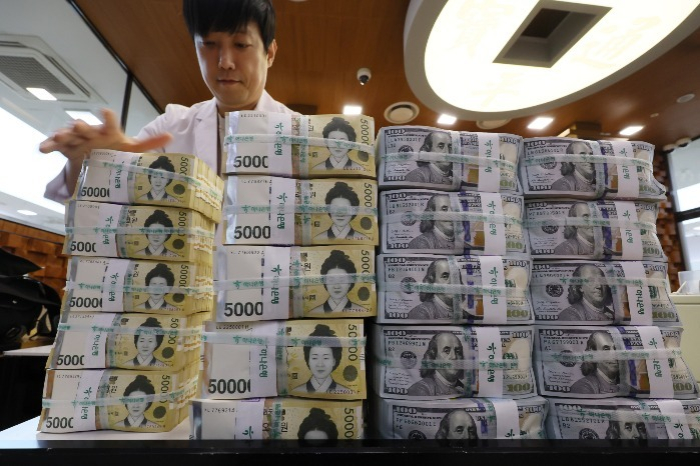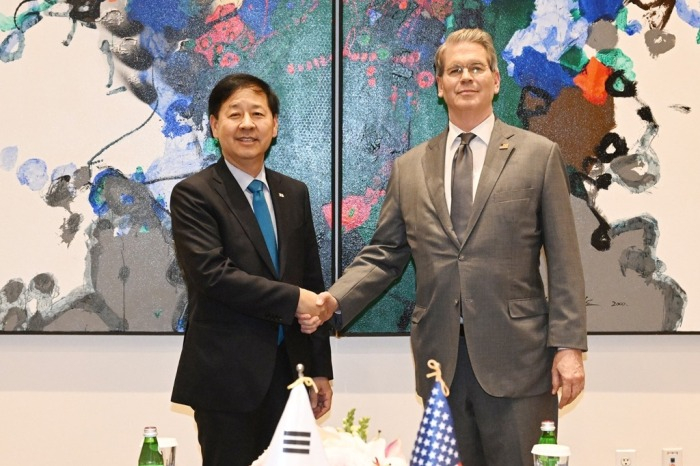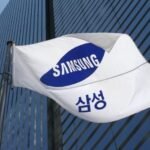
South Korea and the US struck a new foreign-exchange policy accord that officials in Seoul said could lay the groundwork for a prompt bilateral currency swap arrangement, while reducing the risk of Washington designating Asia’s fourth-largest economy a currency manipulator.
The agreement, announced Wednesday jointly by the US Treasury Department and Korea’s Ministry of Economy and Finance, commits Seoul to providing monthly data on its currency-market interventions.
Until now, Korea has disclosed such figures only with a lag after state actions.
This comes after both governments reaffirmed their pledge to let exchange rates be determined by markets, reserving intervention for episodes of “excessive volatility” and applying such moves symmetrically, whether the won is rising or falling.
CURRENCY SWAP TALKS
The joint statement also introduced new language on “monitoring foreign-exchange market stability.”
Officials in Seoul said that the clause could serve as the basis for establishing a dollar swap line between the Bank of Korea and the Federal Reserve in the event of any financial stress.
“If volatility spikes in the FX market, this agreement gives us a stronger basis to seek support from the US,” a Korean Finance Ministry official said.

Korean policymakers have also been pressing Washington for an unlimited swap facility, as part of their broader trade talks.
Seoul argues such a backstop would protect its financial system from any shock, particularly after committing some $350 billion in investments in the US under tariff-related agreements.
Whether Washington will agree to such an arrangement, however, remains uncertain, officials said.
MONITORING LIST PRESSURE
The new accord is also expected to influence the Treasury’s next review of major trading partners’ currency practices.
South Korea was reinstated on the US foreign-exchange monitoring list last November after meeting two of the three statutory thresholds: a goods surplus with the US and a current-account surplus exceeding 3% of GDP.
It fell short of the third test of persistent, one-sided intervention.
By offering Washington more granular and confidential data on its market operations, Seoul hopes to demonstrate transparency and lower the risk of being labeled a manipulator, an outcome that would complicate trade relations.
Korea is currently on the monitoring list alongside China, Japan, Taiwan, Singapore, Vietnam and Germany.
The Korean won hovers around the low-1,400 level against the US dollar, gaining strength after breaking the 1,410 mark late last week.
By Jeong Min Nam and Ik-Hwan Kim
peux@hankyung.com
Sookyung Seo edited this article.














